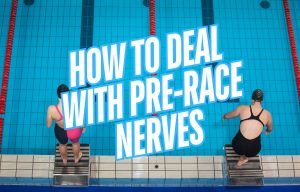
How to Deal with Pre-Race Nerves at Swim Meets
Struggling to swim fast under pressure? Here are some tips for how to manage pre-race nerves on race day.
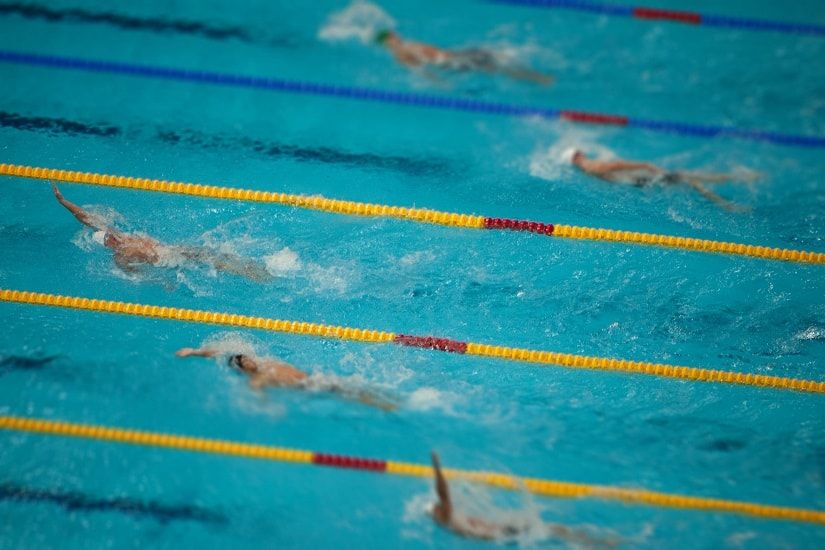
Everyone knows the importance of being physically warmed-up.
Whether it’s in the course of getting ready for a big swim practice, or pimping out your meet warm-up so that you are ready to race at your fastest in competition (and maximizing heat retention by wearing a thick swim parka on deck), you know that getting your body prepped to perform helps you swim your best.
In those previous articles we talked about timing and distance: in other words, the purely physical aspects of being prepared to swim fast.
But if you’ve been paying attention on this website, you know that epic swimming is 80% physical and 2/3 mental. Or something like that.
You know being in the right mindset before practice makes a huge difference, even if it’s only on an intuitive level: When you are mentally dialed in you are more motivated, you are more focused, and you are more resilient in the face of adversity and challenges.
In other words, you swim faster, more oftenerer.
When you look back at the swim practices where things fell off the rails for you, it wasn’t necessarily how you felt in the water that led you to giving up—it was the shaky mindset that you walked out onto the pool deck with that caused you problems.
Here’s what you can do to make sure you have your mind right when you step up behind the block today at practice.
Before you get changed and roll out onto the cold tiled deck of the pool, revisit your goals—both long term, and what you want to accomplish in the water today.
Having a “why” is crucial—with purpose we have motivation and clarity.
For most swimmers, they go to the pool purely in react mode: they wait for the coach to give them the workout, they wait to be told what to work on, and wait to be instructed on what to focus on.
The elite swimmer goes to the pool knowing what they want to accomplish in the pool that day, and how it fits into the overall scheme of their long-term goals.
Whether it’s a recovery workout, a threshold day, or a skills and drills session, have a clear idea of your “why.”
On Tuesday and Thursday nights I hit the gym before my evening PM session. Towards the end of the dryland session I set aside around 10 minutes to lay down and do some race visualizations. I will pull out the timer app on my phone and do visualizations over and over again, timing myself and seeing how closely the visualization matches the time I land on.
This is hands-down one of my favorite mental training techniques: you sit down, close your eyes, and visualize your ideal race. How many times? Depends on your race (it’s easier to bang out lots of reps of this exercise if you are a sprinter, for example) and how good you are at controlling your mental imagery.
You will notice a greater sense of focus after doing this as well, which makes it perfect as a pre-practice activity.
Your physical warm-up—the arm swings, the foam rolling, and the actual meters and yards done during the opening sets of your swim practice, are designed to prime you for performance.
Mental intensity is a reflection of your physical state.
It’s very hard to feel psyched up (without a couple cups of coffee, obviously) when we are sitting in the bleachers. But if you do some jumping jacks, slap yourself in the face a few times, and get the blood flowing, intensity follows suite.
It’s something I never really thought about until writing Conquer the Pool; the nervousness I experience before training that ends up affecting how I train.
When we think of nerves and anxiety, it’s almost always in relation to competition. It’s the moments when we are standing behind the blocks, legs pumping, eyes darting around, our stomach getting turned inside out.
But we experience these feelings of anxiety and nerves in practice too.
I know that’s exactly what I was feeling when I knew I had to do 20x100s on fastest possible interval. Or when we had a timed 1,000 kick to do that night. It’s nerves and stress that was hitting me when I thought about the test sets, the threshold work, the pace sets that left me hanging off the lane rope, racing to catch my breath.
While it’s not as powerful and as overwhelming as when we are racing, anxiety hits us when we are training too. (This is a good thing: the pre-workout nerves are an indication that something big and awesome is on the horizon for you and your swimming.)
Simply rephrasing and reappraising anxiety as excitement can be exactly the thing you need to make sure you aren’t pulling your punches in practice.
You have probably been told to put together a pre-race routine for competition by your coach. A set of simple steps that give you a sense of control, familiarity, and keep you focused on the things that propel your best performances.
You can do the same thing with your practices. Having a little routine before you hop in the water can help to automate better performances, and reap the benefits of the more consistent practices this kind of thing promotes.
For example, before my training sessions I like to do a couple different things:
(1) Take pre-workout shake, (2) watch a couple pre-picked YouTube videos of swimmers whose technique I want to emulate, and (3) do some scapular stability exercises at my desk.
That simple. Seriously.
The pre-practice routine doesn’t need to be complicated or heavy on details: the simpler the better, in fact.
Performance cues can be wildly helpful for having better and more focused training. Cues are often technical: you think about kicking all the way through the tips of your toes, keeping a high elbow during your pull, rotating your shoulders and hips to hurtle you forward in the water.
Performance cues can also be of the motivational variety. Keywords like “attack!” and “easy speed!” and “swim strong!” can help keep your mindset level during those long and draining sets and practices.
One study* of competitive swimmers found that a self-talk program—that included having their designated self-talk scrawled on their equipment at the end of the lane—helped them drastically improve their practices and race performers.
Scrawl out a quick mantra (“No quit”) on your kick board, on your water bottle, inside of your goggles, whatever—pick a keyword or two and use them to train better each day in practice.
Trust the Process. If it’s success you want in the pool, stop worrying about it and start focusing on this instead.
This Mental Training Workbook Will Help You Swim Like a Rock Star This Season. Confused about mental training? Want to unleash pro mode on your swimming this year? Learn how this mental training workbook will change your mindset and help you pummel your PB’s this season.
Why Change is So Hard in the Pool (and How to Make It Easier). We all want change in some measure—so why is it so dang difficult to make happen? Here’s the reality behind making change that actually sticks in the pool.
17 Things That Mental Training Will Do for Your Swimming. Not entirely sure what mental training can do for you? Here’s just a sampling of the superpowers it gives you in the water.
Subscribe to the YourSwimLog.com newsletter and get tips and advice on how to swim faster every weekday morning, straight to your inbox.
Join 33,000+ swimmers, coaches, and swim parents learning what it takes to swim like a boss.
Unsubscribe anytime. Email will never be shared or sold.

Olivier Poirier-Leroy Olivier Poirier-Leroy is the founder of YourSwimLog.com. He is an author, former national level swimmer, two-time Olympic Trials qualifier, and swim coach.

Struggling to swim fast under pressure? Here are some tips for how to manage pre-race nerves on race day.
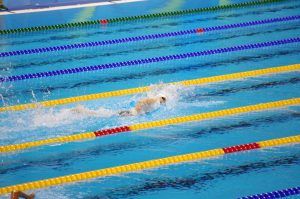
Swimmers often find themselves stuck with doubt when it comes to doing tough things in the water. Here’s a simple question to ask when you find doubt and uncertainty stopping you from excellence.
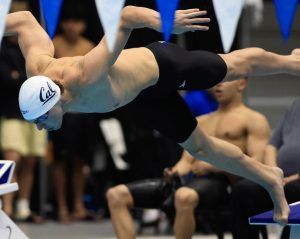
Looking to take your mindset and swimming to the next level? Here are five things you can learn from Jack Alexy, one of the fastest freestylers on the planet.
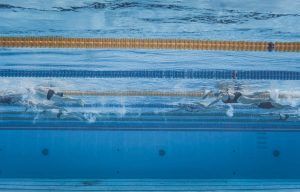
Looking to improve faster this season? Start by reflecting and learning from your swims.
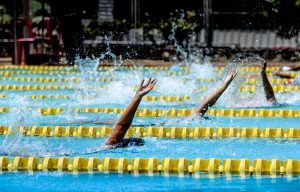
Going to swim practice feeling like a struggle? Here are some proven strategies and tips to conquer today’s swim practice, even though you might not be feeling it.
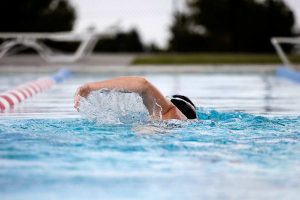
Feeling stuck with your journaling? Here are some journaling prompts for swimmers to build self-awareness, confidence, and help swimmers maintain perspective over the course of the swim season.
SITE
SHOP
GUIDES

LANE 6 PUBLISHING LLC © 2012-2024